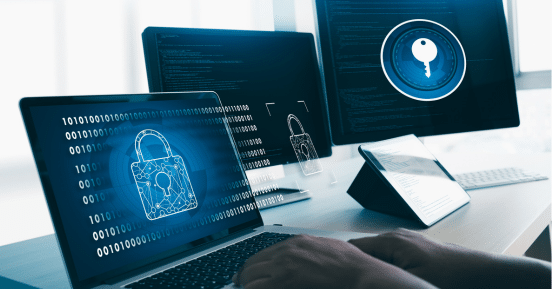In today’s digital age, businesses face an array of cyber threats that can disrupt operations, compromise sensitive data, and damage reputation. At Mindquest, we understand the importance of digital resilience in safeguarding businesses against these threats. Therefore, we discuss practical strategies that businesses can implement to fortify their digital resilience and ensure long-term success.
Find your next assignment on our freelance and permanent IT recruitment platform, or join Mindquest so you don’t miss out on any job opportunity!

What are Digital Resilience Strategies?
A digital resilience strategy refers to a proactive approach taken by businesses to mitigate the impact of cyber threats and disruptions on their operations, data, and reputation. It also involves implementing a combination of technical controls, employee training, incident response plans. And collaboration with cybersecurity partners to fortify defenses and ensure business continuity in the face of cyber attacks. A digital resilience strategy aims to build adaptive and agile business processes that can withstand and recover from cyber incidents effectively.
Also read our article about European Cybersecurity Policy for Businesses.
Strategies for digital resilience

In this blog post, we’ve explored practical strategies for businesses to strengthen their digital resilience in the face of evolving cyber threats
1. Invest in Cybersecurity Training and Education
Firstly, one of the most effective ways to enhance digital resilience is by investing in cybersecurity training and education for employees. Provide regular training sessions to educate staff about common cyber threats, phishing scams, and best practices for data protection. By empowering employees with the knowledge and skills to identify and mitigate risks, businesses can also create a culture of cybersecurity awareness throughout the organization.
You can also read : 10 experts in cybersecurity to follow
2. Implement Multi-Layered Security Measures
Then, a robust cybersecurity strategy should include multi-layered security measures to protect against various types of cyber threats. Implement firewalls, antivirus software, intrusion detection systems, and encryption technologies to safeguard network infrastructure and sensitive data. Additionally, consider implementing multi-factor authentication to add an extra layer of security to user accounts and prevent unauthorized access.
3. Keep Software and Systems Up to Date
Moreover, outdated software and systems are often vulnerable to cyber attacks, as they may contain known security vulnerabilities. Ensure that all software applications, operating systems, and firmware are regularly updated with the latest security patches and fixes. Also, establish a patch management process to monitor for updates and apply them promptly to minimize the risk of exploitation by cybercriminals.
Also read our Cybersecurity Expert Job Description
4. Conduct Regular Security Audits and Risk Assessments
In addition, regular security audits and risk assessments are essential for identifying vulnerabilities and weaknesses in business systems and processes. Also, conduct comprehensive assessments to identify potential security gaps, evaluate existing controls, and prioritize remediation efforts. By proactively addressing security risks, businesses can strengthen their digital resilience and minimize the likelihood of cyber attacks.
5. Establish Incident Response Plans
Then, despite best efforts to prevent cyber attacks, businesses should be prepared to respond effectively in the event of a security incident. Establish incident response plans outlining roles, responsibilities, and procedures for detecting, containing, and mitigating cyber threats. Also, conduct regular tabletop exercises and simulations to test the effectiveness of incident response plans. And ensure that employees are prepared to respond to real-world scenarios.
Also read how Securing Smart Devices at Home
6. Foster Collaboration with Cybersecurity Partners
In conclusion, collaboration with cybersecurity partners, such as managed security service providers (MSSPs) or cybersecurity consultants, can provide businesses with additional expertise and resources to enhance digital resilience. Partner with reputable cybersecurity firms to conduct security assessments, develop customized security solutions, and provide ongoing support and monitoring. By leveraging external expertise, businesses can strengthen their cybersecurity posture and stay ahead of evolving threats.
Need advice on how to start or develop your freelance consulting business in tech or IT? Need to start a new permanent or freelance assignment? Join Mindquest and get support from our team of experts.



